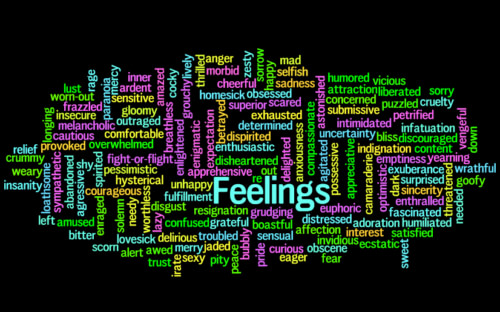We’ve all been there.
You’re upset about something that happened in your life and can’t seem to move past the hurtful, negative feelings. Have you really processed your feelings if they continue to creep into your day-to-day thoughts?
Chances are that the answer is NO.
Adopting a consistent habit of writing in a journal can help you learn to effectively process your feelings and adopt healthier coping strategies when it comes to your intense emotions.
What is Expressive Writing?
Expressive writing is when you focus on journaling about your deepest thoughts and emotions, especially those that surround any emotional challenges you are facing in your life.
This type of journaling is a way to explore what is happening in your life – past or present – as well as how it affects you. The act of sitting down to write about your anger, fear, or sadness is not always the most pleasant way to spend some time, but the long-term effects of expressive writing are incredibly positive.
While writing about tough emotions can be difficult, those who commit to doing it report feeling a greater sense of meaning, having an enhanced perspective on their problems, and having an improved sense of well-being over time.
Writing about significant life changes, disappointments, and events that lead to emotional trauma helps you to work through the complicated feelings you are having, identify the triggers or causes of your pain, and can reduce your stress around the events that led to these feelings.
Expressive writing provides an outlet to explore your emotions privately, which can lead to an improved perspective, better solutions to problems, and an overall enhances emotional wellness.
How to Use Journaling to Process Your Feelings
Expressive writing is best accomplished in 20-30-minute sessions that are uninterrupted.
Sit down with your journal or computer and just start writing. Write continuously without stopping to worry about what to say, if what you are writing makes sense, or how your writing is structured.
Just start writing what comes to your mind and keep going.
Explore your most persistent thoughts and deepest emotions. The thoughts that keep coming back to you are there because you’ve got to learn to deal with and resolve them. It may not happen immediately, but you are worth the time and the consistent effort it will take to do it.
Discuss the most significant troubles in your life. Where did they start, and what activities, events, or people aggravate them? Could parts of your life be due for a change to help reduce the recurrence of troubles and the associated emotions?
Explore the past events that trouble you. What’s your earliest memory of the event and what happened during the trouble? Who was part of your life at the time? Are they still a part of your life and playing the same role? Narrowing down the triggers for your past troubling events can help you to avoid or even eliminate them in the future.
Consider your relationships and how they influence your life. Are you troubled by familial relationships? Perhaps it’s a co-worker that you’ve been around for years, and until you analyze the relationship, you might not realize that they are a trigger point for negative emotions and actions for you. You don’t have to continue to put yourself in proximity to people who trigger you and encourage negative reactions or behaviors.
Some people enjoy writing just before bed, which is a way to get your concerns out of your mind and can help you fall asleep faster. Others like to write first thing in the morning when their thoughts are most focused and fresh.
Find a time, place, and format that works best for you, and stick with it. A daily habit is best, as you will soon begin to look forward to your journal time, knowing the emotional release and processing that will take place while you write.
Why Expressive Writing Helps
Several research studies have offered preliminary explanations as to why journaling is such an effective strategy for coping with feelings.
The best reason is that the act of writing, which is translating your thoughts into words and then putting them on paper, is powerful and cathartic.
Journaling, like talking to a trusted friend or a counselor, allows you to get your emotions out into the open instead of keeping them buried inside, which has been shown to cause emotional, psychological, and mental health problems.
Getting your feelings out of your mind and onto paper frees up emotional and cognitive space for more important ideas and thoughts. Expressive writing leads to improved creativity and memory, which shows how it can free your mind from constant focus and worry about your feelings.
Journaling is a process that allows you to identify your feelings, explore the sources and repercussions of them, and determine the best course of action for dealing with them.
This cycle is the essence of emotional processing, which leads to improved well-being and stability.


